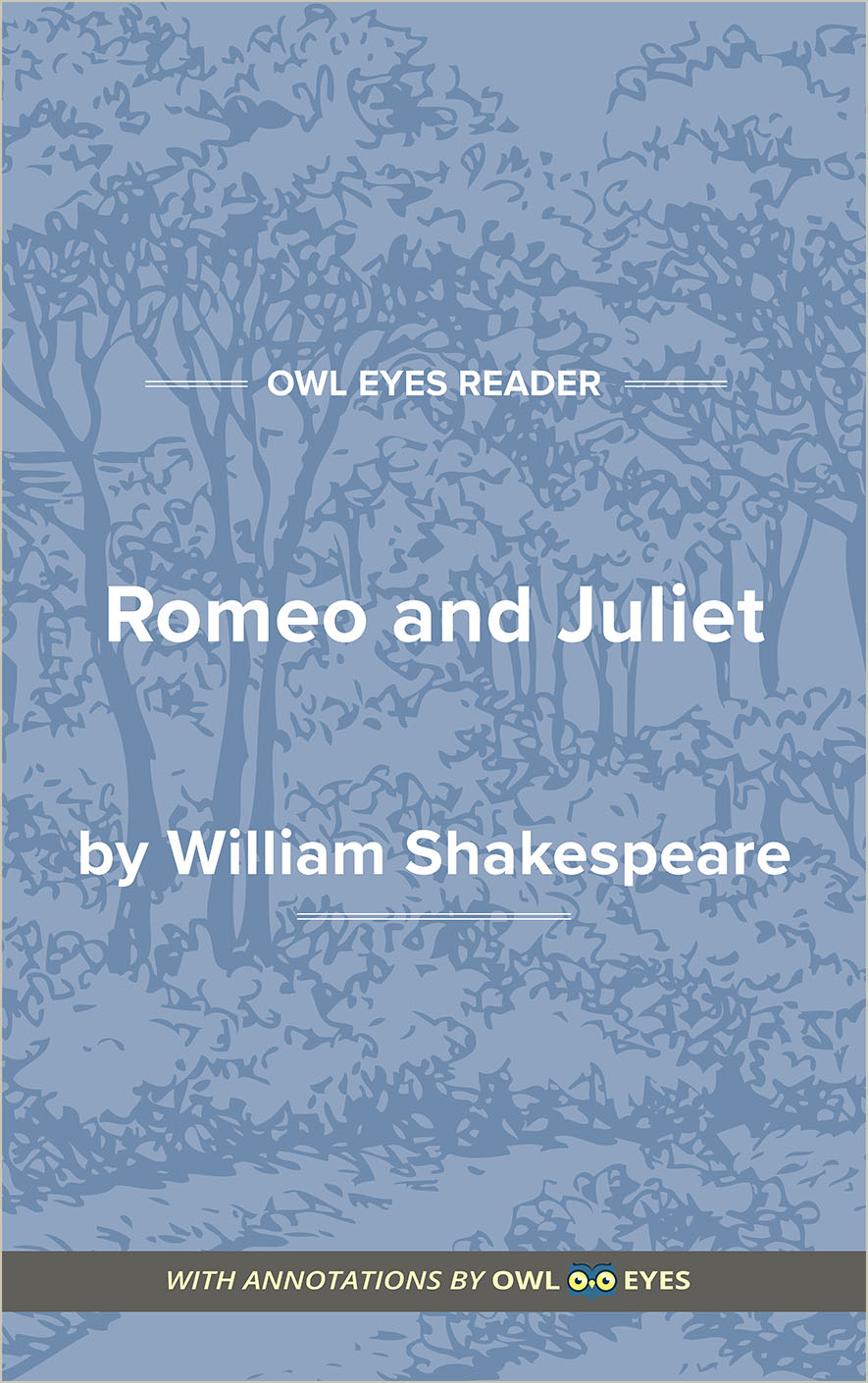Analysis Pages
Quote Analysis in Romeo and Juliet
Quote Analysis Examples in Romeo and Juliet:
The Prologue
🔒"From forth the fatal loins of these two foes(5) A pair of star-cross'd lovers take their life; Whose misadventur'd piteous overthrows Doth, with their death, bury their parents’ strife. The fearful passage of their death-mark'd love, And the continuance of their parents’ rage,(10) Which, but their children's end, naught could remove, Is now the two hours’ traffic of our stage; The which if you with patient ears attend, What here shall miss, our toil shall strive to mend...." See in text (The Prologue)
Act I - Scene V
🔒"My only love, sprung from my only hate! Too early seen unknown, and known too late! Prodigious birth of love it is to me That I must love a loathed enemy...." See in text (Act I - Scene V)
"I have seen the day(20) That I have worn a visor and could tell A whispering tale in a fair lady's ear, Such as would please. 'Tis gone, 'tis gone, 'tis gone! You are welcome, gentlemen! Come, musicians, play. A hall, a hall! give room! and foot it, girls. Music plays, and they dance. (25) More light, you knaves! and turn the tables up, And quench the fire, the room is grown too hot. Ah, sirrah, this unlook'd-for sport comes well. Nay, sit, nay, sit, good cousin Capulet, For you and I are past our dancing days...." See in text (Act I - Scene V)
Act II - Scene II
🔒"A thousand times good night!..." See in text (Act II - Scene II)
"Parting is such sweet sorrow,..." See in text (Act II - Scene II)
"What's in a name? That which we call a rose(45) By any other name would smell as sweet...." See in text (Act II - Scene II)
"O Romeo, Romeo! wherefore art thou Romeo?..." See in text (Act II - Scene II)
"But soft! What light through yonder window breaks? It is the East, and Juliet is the sun!..." See in text (Act II - Scene II)
Act II - Scene IV
🔒" if our wits run the wild-goose chase, I am done; for thou hast more of the wild goose in one of thy wits than, I am sure, I have in my whole five. ..." See in text (Act II - Scene IV)
Act III - Scene I
🔒"O, I am fortune's fool!..." See in text (Act III - Scene I)
"A plague o’ both your houses..." See in text (Act III - Scene I)
Act V - Scene III
🔒" Yea, noise? Then I'll be brief. O happy dagger! Snatches Romeo's dagger. This is thy sheath; there rust, and let me die...." See in text (Act V - Scene III)
"O true apothecary! Thy drugs are quick. Thus with a kiss I die...." See in text (Act V - Scene III)

